Galileo Galilei Quotes
Quotes tagged as "galileo-galilei"
Showing 1-30 of 31

“If the people of Europe had known as much of astronomy and geology when the bible was introduced among them, as they do now, there never could have been one believer in the doctrine of inspiration. If the writers of the various parts of the bible had known as much about the sciences as is now known by every intelligent man, the book never could have been written. It was produced by ignorance, and has been believed and defended by its author. It has lost power in the proportion that man has gained knowledge. A few years ago, this book was appealed to in the settlement of all scientific questions; but now, even the clergy confess that in such matters, it has ceased to speak with the voice of authority. For the establishment of facts, the word of man is now considered far better than the word of God. In the world of science, Jehovah was superseded by Copernicus, Galileo, and Kepler. All that God told Moses, admitting the entire account to be true, is dust and ashes compared to the discoveries of Descartes, Laplace, and Humboldt. In matters of fact, the bible has ceased to be regarded as a standard. Science has succeeded in breaking the chains of theology. A few years ago, Science endeavored to show that it was not inconsistent with the bible. The tables have been turned, and now, Religion is endeavoring to prove that the bible is not inconsistent with Science. The standard has been changed.”
― Some Mistakes of Moses
― Some Mistakes of Moses
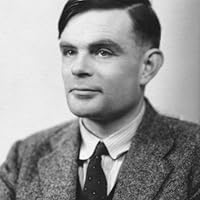
“I am not very impressed with theological arguments whatever they may be used to support. Such arguments have often been found unsatisfactory in the past. In the time of Galileo it was argued that the texts, 'And the sun stood still... and hasted not to go down about a whole day' (Joshua x. 13) and 'He laid the foundations of the earth, that it should not move at any time' (Psalm cv. 5) were an adequate refutation of the Copernican theory.”
― Computing machinery and intelligence
― Computing machinery and intelligence

“Is it possible that the Pentateuch could not have been written by uninspired men? that the assistance of God was necessary to produce these books? Is it possible that Galilei ascertained the mechanical principles of 'Virtual Velocity,' the laws of falling bodies and of all motion; that Copernicus ascertained the true position of the earth and accounted for all celestial phenomena; that Kepler discovered his three laws—discoveries of such importance that the 8th of May, 1618, may be called the birth-day of modern science; that Newton gave to the world the Method of Fluxions, the Theory of Universal Gravitation, and the Decomposition of Light; that Euclid, Cavalieri, Descartes, and Leibniz, almost completed the science of mathematics; that all the discoveries in optics, hydrostatics, pneumatics and chemistry, the experiments, discoveries, and inventions of Galvani, Volta, Franklin and Morse, of Trevithick, Watt and Fulton and of all the pioneers of progress—that all this was accomplished by uninspired men, while the writer of the Pentateuch was directed and inspired by an infinite God? Is it possible that the codes of China, India, Egypt, Greece and Rome were made by man, and that the laws recorded in the Pentateuch were alone given by God? Is it possible that Æschylus and Shakespeare, Burns, and Beranger, Goethe and Schiller, and all the poets of the world, and all their wondrous tragedies and songs are but the work of men, while no intelligence except the infinite God could be the author of the Pentateuch? Is it possible that of all the books that crowd the libraries of the world, the books of science, fiction, history and song, that all save only one, have been produced by man? Is it possible that of all these, the bible only is the work of God?”
― Some Mistakes of Moses
― Some Mistakes of Moses

“. . . we come astonishingly close to the mystical beliefs of Pythagoras and his followers who attempted to submit all of life to the sovereignty of numbers. Many of our psychologists, sociologists, economists and other latter-day cabalists will have numbers to tell them the truth or they will have nothing. . . . We must remember that Galileo merely said that the language of nature is written in mathematics. He did not say that everything is. And even the truth about nature need not be expressed in mathematics. For most of human history, the language of nature has been the language of myth and ritual. These forms, one might add, had the virtues of leaving nature unthreatened and of encouraging the belief that human beings are part of it. It hardly befits a people who stand ready to blow up the planet to praise themselves too vigorously for having found the true way to talk about nature.”
― Amusing Ourselves to Death: Public Discourse in the Age of Show Business
― Amusing Ourselves to Death: Public Discourse in the Age of Show Business
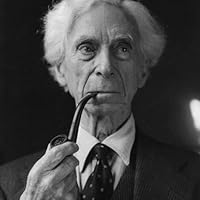
“What Galileo and Newton were to the seventeenth century, Darwin was to the nineteenth.”
― A History of Western Philosophy
― A History of Western Philosophy
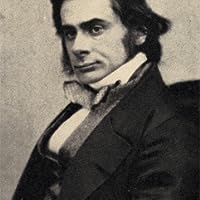
“With the growth of civilisation in Europe, and with the revival of letters and of science in the fourteenth and fifteenth centuries, the ethical and intellectual criticism of theology once more recommenced, and arrived at a temporary resting-place in the confessions of the various reformed Protestant sects in the sixteenth century; almost all of which, as soon as they were strong enough, began to persecute those who carried criticism beyond their own limit. But the movement was not arrested by these ecclesiastical barriers, as their constructors fondly imagined it would be; it was continued, tacitly or openly, by Galileo, by Hobbes, by Descartes, and especially by Spinoza, in the seventeenth century; by the English Freethinkers, by Rousseau, by the French Encyclopaedists, and by the German Rationalists, among whom Lessing stands out a head and shoulders taller than the rest, throughout the eighteenth century; by the historians, the philologers, the Biblical critics, the geologists, and the biologists in the nineteenth century, until it is obvious to all who can see that the moral sense and the really scientific method of seeking for truth are once more predominating over false science. Once more ethics and theology are parting company.”
― The Evolution Of Theology: An Anthropological Study
― The Evolution Of Theology: An Anthropological Study
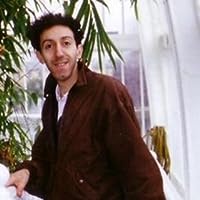
“It is better to go near the truth and be imprisoned than to stay with the wrong and roam about freely, master Galilei. In fact, getting attached to falsity is terrible slavery, and real freedom is only next to the right.”
― Galileo Galilei
― Galileo Galilei

“Oh my son, so poor in doing the right things, so rich in doing the wrong things! What great poverty it is to be so rich!”
― Galileo Galilei
― Galileo Galilei

“A men whose every word is nothing but the truth is not a human being but a god! Gods do not die, whereas Aristotle is lying in a grave now.”
― Galileo Galilei
― Galileo Galilei

“I know it too well, my friend. Fresh water does not come out of a bitter spring; you don’t expect to get rose perfume coming out of a rubbish heap, neither scorpions to kiss people!”
― Galileo Galilei
― Galileo Galilei
“Science would not be what it is if there had not been a Galileo, a Newton or a Lavoisier, any more than music would be what it is if Bach, Beethoven and Wagner had never lived. The world as we know it is the product of its geniuses—and there may be evil as well as beneficent genius—and to deny that fact, is to stultify all history, whether it be that of the intellectual or the economic world.”
― What Is Science?
― What Is Science?

“After a duration of a thousand years, the power of astrology broke down when, with Copernicus, Kepler, and Galileo, the progress of astronomy overthrew the false hypothesis upon which the entire structure rested, namely the geocentric system of the universe. The fact that the earth revolves in space intervened to upset the complicated play of planetary influences, and the silent stars, related to the unfathomable depths of the sky, no longer made their prophetic voices audible to mankind. Celestial mechanics and spectrum analysis finally robbed them of their mysterious prestige.”
― Astrology and Religion Among the Greeks and Romans
― Astrology and Religion Among the Greeks and Romans
“The biblical account of the origin of the cosmos in Genesis, for example, posits that a god created the physical universe particularly with human beings in mind, and so unsurprisingly placed the Earth at the center of creation.
Modern cosmological knowledge has refuted such an account. We are living in the golden age of cosmology: More has been discovered about the large-scale structure and history of the visible cosmos in the last 20 years than in the whole of prior human history. We now have precise knowledge of the distribution of galaxies and know that ours is nowhere near the center of the universe, just as we know that our planetary system has no privileged place among the billions of such systems in our galaxy and that Earth is not even at the center of our planetary system. We also know that the Big Bang, the beginning of our universe, occurred about 13.7 billion years ago, whereas Earth didn’t even exist until about 10 billion years later.
No one looking at the vast extent of the universe and the completely random location of homo sapiens within it (in both space and time) could seriously maintain that the whole thing was intentionally created for us. This realization began with Galileo, and has only intensified ever since.”
―
Modern cosmological knowledge has refuted such an account. We are living in the golden age of cosmology: More has been discovered about the large-scale structure and history of the visible cosmos in the last 20 years than in the whole of prior human history. We now have precise knowledge of the distribution of galaxies and know that ours is nowhere near the center of the universe, just as we know that our planetary system has no privileged place among the billions of such systems in our galaxy and that Earth is not even at the center of our planetary system. We also know that the Big Bang, the beginning of our universe, occurred about 13.7 billion years ago, whereas Earth didn’t even exist until about 10 billion years later.
No one looking at the vast extent of the universe and the completely random location of homo sapiens within it (in both space and time) could seriously maintain that the whole thing was intentionally created for us. This realization began with Galileo, and has only intensified ever since.”
―

“It’s very dangerous to invent something in our times; ostentatious men of the other world, who are hostile to innovations, roam about angrily. To live in peace, one has to stay away from innovations and new ideas. Innovations, like trees, attract the most destructive lightnings to themselves.”
― Galileo Galilei
― Galileo Galilei

“To go to the wine house and not to get drunk is as difficult as to dive into a pool and not get wet!”
―
―

“We are surrounded by the dry thorns of the Inquisition on all four sides; throwing around words burning like fire is the shortest way to one’s grave!”
― Galileo Galilei
― Galileo Galilei

“I never worry about how many legs my chicken has, about whether it can fly or not, about which cock was her husband; that my hen gives me eggs is enough for me!”
― Galileo Galilei
― Galileo Galilei

“Man is a ‘jar of mistakes’, dear Giulia; as we have made a mistake, we are human; this proves it!”
― Galileo Galilei
― Galileo Galilei

“When the number of children goes over one, God becomes miserly in granting intelligence; he takes it from the living child and gives it to the child to be born.”
― Galileo Galilei
― Galileo Galilei

“It helps nothing to cry and complain, to pluck our hair. There’s no difference between getting mad at our fate and getting mad at rocks and stones. The ears of Fate are completely deaf; anyway, it doesn’t matter whether she hears our voices or not; when the moment comes, she only speaks of the things she has already designed and rains the orders she has already planned.”
― Galileo Galilei
― Galileo Galilei

“If absurdities could be eaten like pigs, you could immediately set up an absurdity farm and get much richer than a king!”
― Galileo Galilei
― Galileo Galilei

“Innovations, free thinking is blowing like a storm; those that stand in front of it, ignorant scholars like you, false scientists, perverse conservatives, obstinate goats, resisting mules are being crushed under the weight of these innovations. You are nothing but ants standing in front of the giants; nothing but chicks trying to challenge roaring volcanoes!”
― Galileo Galilei
― Galileo Galilei

“The mind God is looking for in man is a doubting, questioning mind, not a dogmatic mind; dogmatic reasoning is wrong reasoning. Dogmatic reason ties a huge rock to a man’s foot and stops him forever from advancing.”
― Galileo Galilei
― Galileo Galilei

“There must be a marsh in the brains of these men or there would not be so many frogs of wrong ideas gathered in their heads.”
― Galileo Galilei
― Galileo Galilei

“A fortune-teller means a braggart anyway. Don’t you know that a donkey can’t do but braying, a wolf can’t do but howling, a horse can’t do but neighing, and a fortune-teller can’t do but telling lies?”
― Galileo Galilei
― Galileo Galilei

“En effet, l'Eglise n'a pas condamné la théorie de Copernic, qui s'appuyait lui-même sur Icetus de Syracuse, jusqu'à ce que Galilée, quatre-vingts ans plus tard, sans apporter de preuve décisive à l'appui de la nouvelle théorie, décide de placer sur le plan théologique la querelle de l'ordre géocentrique ou héliocentrique du monde, en défiant la Curie par de violentes attaques de prendre positions sur le problème. Le pape Urbain VIII proposa de définir le système héliocentrique comme une thèse mathématique possible, mais pas nécessairement comme celle qui garantissait la vérité définitive. Loin de se ranger à cette suggestion, Galilée répliqua en publiant son Dialogo sui Massimi Sistemi, dans lequel il présentait le pape comme un simple d'esprit. D'où ce procès tristement célèbre, au cours duquel Galilée ne prononça nullement son fameux "Eppur si muove" (Et pourtant, elle se meut), mais abjura toutes ses déclarations pour avoir le droit de continuer à vivre en paix et dans l'honneur. La postérité littéraire de Galilée pris comme héros a fait naître chez plusieurs dignitaires de l'Eglise une sorte de sentiment de culpabilité qui les rend étrangement désarmés devant les théories scientifiques modernes même lorsque celles-ci sont en contradiction flagrante avec les vérités de la foi et de l'entendement. On a l'habitude de dire que l'Eglise n'a pas à se mêler de problèmes scientifiques ; le cas même de Galilée prouve justement que la nouvelle science rationaliste de la Renaissance prétendait à la vérité absolue et se présentait donc comme une seconde religion. p135”
― Science moderne et Sagesse traditionnelle
― Science moderne et Sagesse traditionnelle

“The Sun is 93 million miles from Earth. In 1610, Galileo observed sunspots on its surface, proving that the Sun was rotating and at different speeds. It also proved that you never know who's watching you.”
―
―
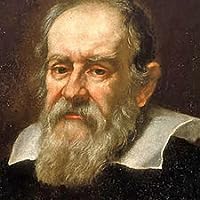
“Curiosity is the key to problem solving"
Check youtube channel "Motivationaldailyquotes" for more quotes!”
―
Check youtube channel "Motivationaldailyquotes" for more quotes!”
―
“Quando Galileo bateu de frente com a igreja católica, eles defendiam Aristóteles, que nunca havia feito um único experimento. As descobertas de Galileu entraram em conflito com as visões aristotélicas e ptolomaicas, que eram apoiadas pela Igreja Católica. Em 1616, a Inquisição declarou o heliocentrismo formalmente herético e proibiu livros que o defendiam. Galileu continuou a propor teorias, como a das marés e dos cometas, que também desafiavam o status quo.”
― Ciência para não cientistas: como ser mais racional em um mundo cada vez mais irracional (Vol. II: Religião) (Inteligência Artificial, Democracia, e Pensamento Crítico)
― Ciência para não cientistas: como ser mais racional em um mundo cada vez mais irracional (Vol. II: Religião) (Inteligência Artificial, Democracia, e Pensamento Crítico)
All Quotes
|
My Quotes
|
Add A Quote
Browse By Tag
- Love Quotes 97k
- Life Quotes 75.5k
- Inspirational Quotes 72.5k
- Humor Quotes 43.5k
- Philosophy Quotes 29.5k
- Inspirational Quotes Quotes 27k
- God Quotes 26k
- Truth Quotes 23.5k
- Wisdom Quotes 23.5k
- Romance Quotes 23k
- Poetry Quotes 22k
- Death Quotes 20k
- Happiness Quotes 18.5k
- Life Lessons Quotes 18.5k
- Hope Quotes 18k
- Faith Quotes 18k
- Quotes Quotes 16.5k
- Inspiration Quotes 16.5k
- Spirituality Quotes 15k
- Religion Quotes 15k
- Motivational Quotes 15k
- Writing Quotes 14.5k
- Relationships Quotes 14.5k
- Life Quotes Quotes 14k
- Love Quotes Quotes 13.5k
- Success Quotes 13.5k
- Time Quotes 12.5k
- Motivation Quotes 12k
- Science Quotes 11.5k
- Knowledge Quotes 11k


